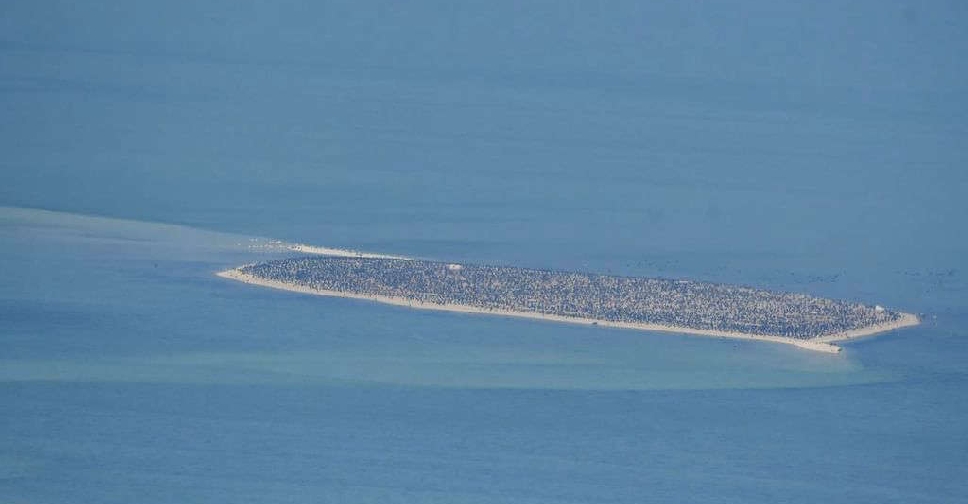Aerial Survey Highlights Conservation Success in Abu Dhabi's Marine Ecosystems
By [Your Name]
[Date]
Tags: #EnvironmentNews, #UAE, #BusinessNews
In a significant advancement for marine conservation, the Environment Agency – Abu Dhabi (EAD) has recently concluded an extensive aerial survey that encompassed more than 8,000 square kilometers of marine habitat. This survey marks a critical component of EAD’s long-term monitoring program, which has been in operation since 2004. As the only institution in the Middle East engaged in systematic aerial assessments of marine species, EAD is pioneering efforts that serve as a model for conservation in the region.
The latest survey reveals promising data, including a remarkable 20 percent rise in dugong populations and a 30 percent increase in sea turtles, as compared to figures from the last survey. These findings are not merely statistics; they represent the confluence of successful scientific intervention and conservation strategy aimed at protecting these vulnerable species.
Conducted over 26 hours, the aerial survey involved a dedicated team of six researchers equipped with state-of-the-art imaging technology. The team recorded the presence of not only the sought-after dugongs and sea turtles but also an array of marine life, including dolphins, whales, sharks, rays, and seabirds. This comprehensive assessment provided a snapshot of the richness inherent to Abu Dhabi’s marine biodiversity, underscoring the emirate’s significant role in the ecological fabric of the region.
Ahmed Al Hashmi, the Executive Director for Biodiversity at EAD, articulated the sentiments of the agency, stating that these results are a testament to the effectiveness of science-based conservation measures that have been employed over the years. Key strategies, such as the establishment of protected marine areas and the enforcement of fishing net bans, have played a vital role in supporting marine life recovery.
The implications of the data collected during this survey extend beyond immediate conservation results. The findings are poised to inform future environmental policies, assisting in the sustainable management of marine resources. Such tailored policies are crucial as global marine ecosystems continue to grapple with the pressures of climate change, overfishing, and habitat degradation.
Notably, Abu Dhabi has ascended to the status of the second-largest habitat for dugongs globally, only surpassed by Australia. With over 3,500 dugongs documented in this recent survey, the emirate plays an increasingly important role in the global strategy for the conservation of this endangered species.
These encouraging results are in harmony with wider international efforts aimed at safeguarding marine biodiversity. As countries across the globe recognize the importance of protecting ocean ecosystems, Abu Dhabi’s initiatives contribute meaningfully to these efforts.
This latest survey not only highlights success but also serves as a call to action. The need for continued investment in conservation programs is paramount. Although these increases in marine populations are a source of optimism, the constant threats faced by marine life necessitate vigilant monitoring and pro-active management.
Moreover, EAD’s work embodies a growing movement towards integrating scientific research with public policy. As the data from this survey is analyzed and translated into actionable policies, there is an opportunity for stakeholder engagement that can include the local fishing community, environmental groups, and the general public. By fostering a collaborative approach to marine conservation, Abu Dhabi can create a robust framework for ongoing ecological stewardship.
As we contemplate the future of the marine ecosystems surrounding Abu Dhabi, it is essential to remain both proactive and vigilant. The results of the aerial survey serve as a reminder of the resilient nature of marine wildlife, but they also reinforce the responsibility human societies have in ensuring these ecosystems thrive. Protecting marine biodiversity is not merely an environmental obligation; it is an ethical imperative that connects us all.
In conclusion, the recent aerial survey conducted by EAD marks a significant achievement in the conservation of marine species in the UAE. The impressive increases in key populations underscore the potential for sustained ecological recovery through informed and science-based management strategies.
As we continue to face environmental challenges on a global scale, the lessons learned in Abu Dhabi could serve as a guiding light for other regions aspiring to enact effective conservation measures.
END
—
Related Focus:
– Future of Marine Biodiversity in the Gulf Region
– Public Engagement in Environmental Policy-making

